The story of the house
Discover the key stages of a family business dating back to over 200 years.
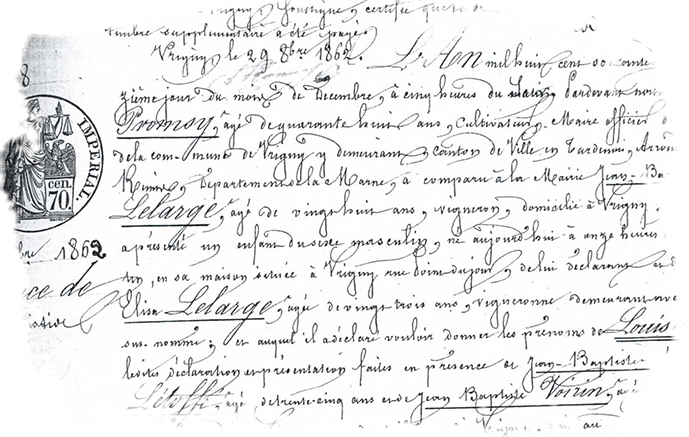
1799
Pierre-Henri Lelarge was born and moved to Vrigny where he got married. And thus, the story of winegrowers in the Lelarge family begins…

1914 -1918
The northern part of the Champagne region was greatly impacted during the first World War. Raymond, 5th generation of the Lelarge family, joined the army and went to war. Meanwhile, his family escaped to Polisy in Southern Champagne.

1922
After returning from the war, the Lelarge family began restorations on the vineyard while Raymond began building a press machine.
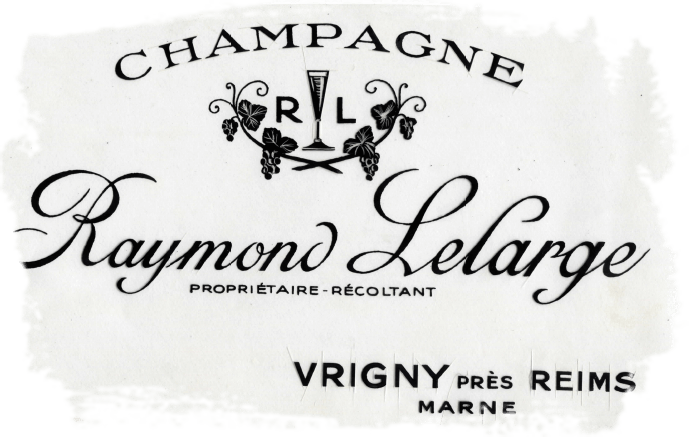
1930
Champagne Lelarge is bottled for the first time.
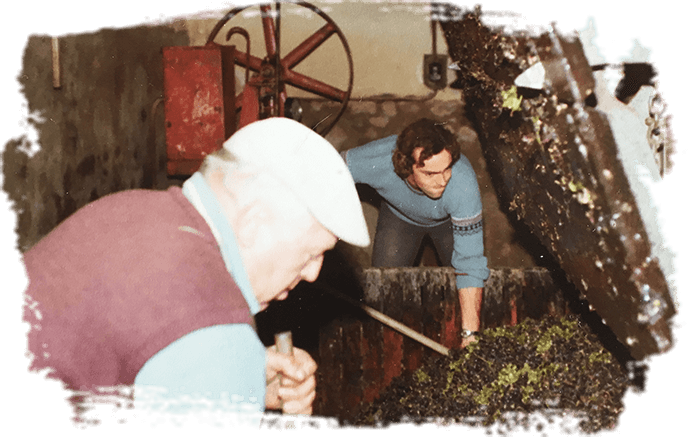
1950
Marcel, Raymond’s son, and Fernande (Marcel’s wife) took over the winery. In 1963, Dominique, the current generation, was born.
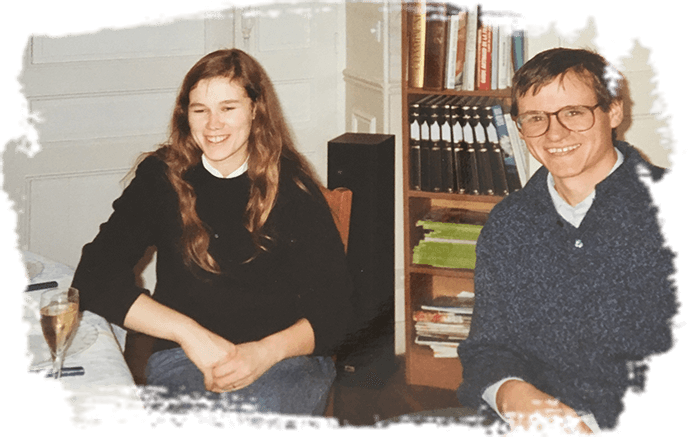
1983
Dominique takes off to Beaune in Burgundy to study viticulture and oenology where he met his future wife, Dominique Pugeot. A few years later, the couple takes over the winery, which then became Champagne Lelarge-Pugeot.

1990
The young couple decided to envision a new way of farming. They began reducing their usage of pesticides and herbicides asking themselves, “Why would we do something to our vines that we would not do to ourselves?”
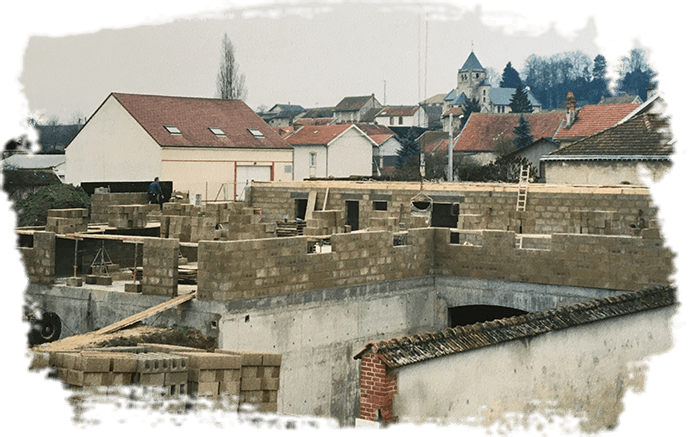
1998
The family began working on their winery, building a new cellar and press machine with the potential of bottling more Champagne.

2000
Dominique decided to stop the use of insecticides and herbicides completely with the goal of letting the predatory wildlife take its course as nature intended. He also started growing grass between the vines.

2005
All the vines developed cover crops which signaled that it was now time to start ploughing more.

2008
Thanks to a much more respectful way of farming, grapes come in the winery at a higher sugar level, which allows the winery to produce a Coteaux Champenois Rouge, a still red of Pinot noir.

2009
Some parcels are ploughed with horses.

2010
The family commited to the organic certification with Ecocert.

2010
Meunier is the ancestral grape of the terroir of Vrigny. The first 100% Meunier is bottled.
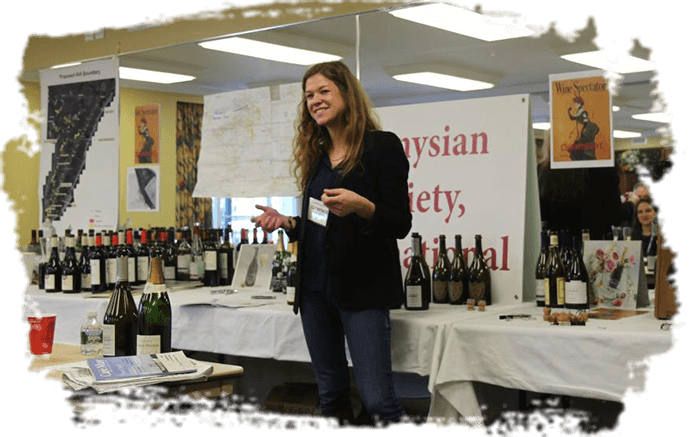
2012
With the goal of producing the entire estate, the family reduced the amount of grapes sold. Clémence, the oldest daughter, joined the family business and started promoting the Champagnes throughout the world.

2013
The first vintage of Blanc de Meunier is bottled. A white wine made from a red grape. A delish!
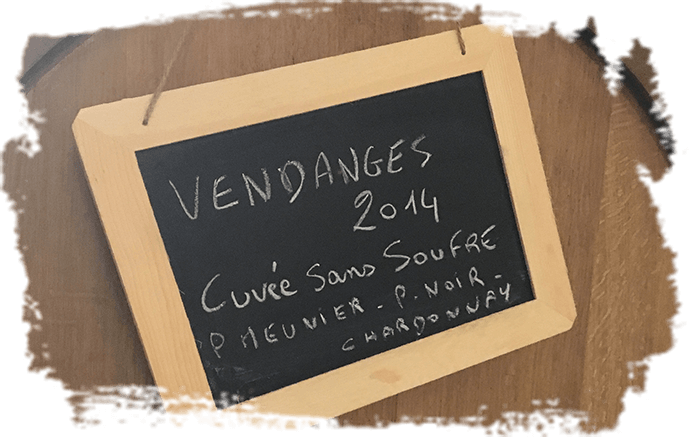
2014
The year of CHANGE! Half of the vineyard is now certified organic. Then, Dominique starts practicing biodynamie. During the 2014 harvest, some of the wines were made 100% within the natural way. No manipulation, no sulfur, no sugar. This juice will be the cuvee “Nature et Non dose”.

2015
The vineyard of the estate was certified organic by ECOCERT. An extension of the current winery building started with a projection of completion in 2017.

2016
The family acquires bee hives.

2017
The 7th and 8th generations are working together. Valentin, the middle child joined the team in 2015. Another great news for this new year, the winery is certified biodynamic (Demeter).

2018
Our team has a new member, a border collie, the guardian of the winery; Nova (on the left in the picture)

2019
The cellar is finished and couple new fermenters arrives: amphoras from the Basque Country and 500L barrels.

2020
We planted lots of fruit trees (peach, apple, cherry, plum, almond) to encourage natural biodiversity in the vineyard.
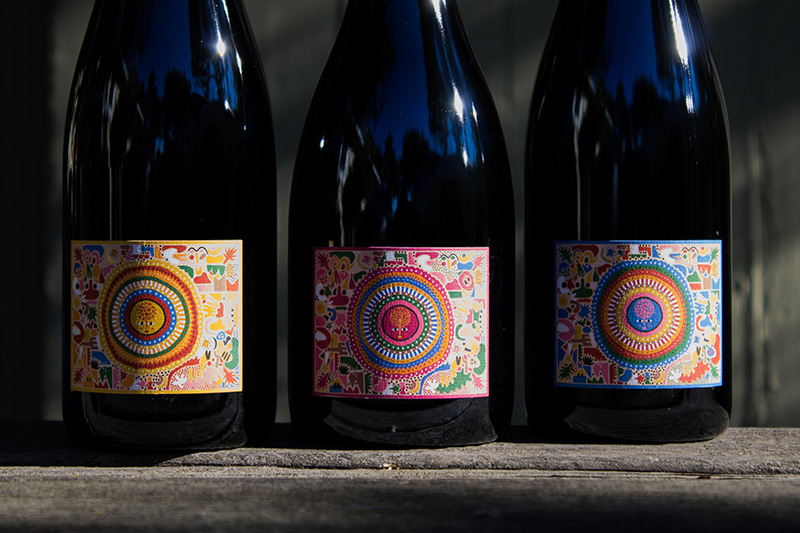
2022
Release of our 100% Natural cuvées; the Luna in 3 volumes. Like a book, those three cuvées tell a story, a story of our terroir, our work with biodynamic farming, natural wines et a story of wanting more freedom. With these cuvées also came the collaboration with the talented artist Ayca (@murbyayca) who designed our label and with the International Federation with Human Rights to who we’re commited to give back 5 euros per bottle sold.
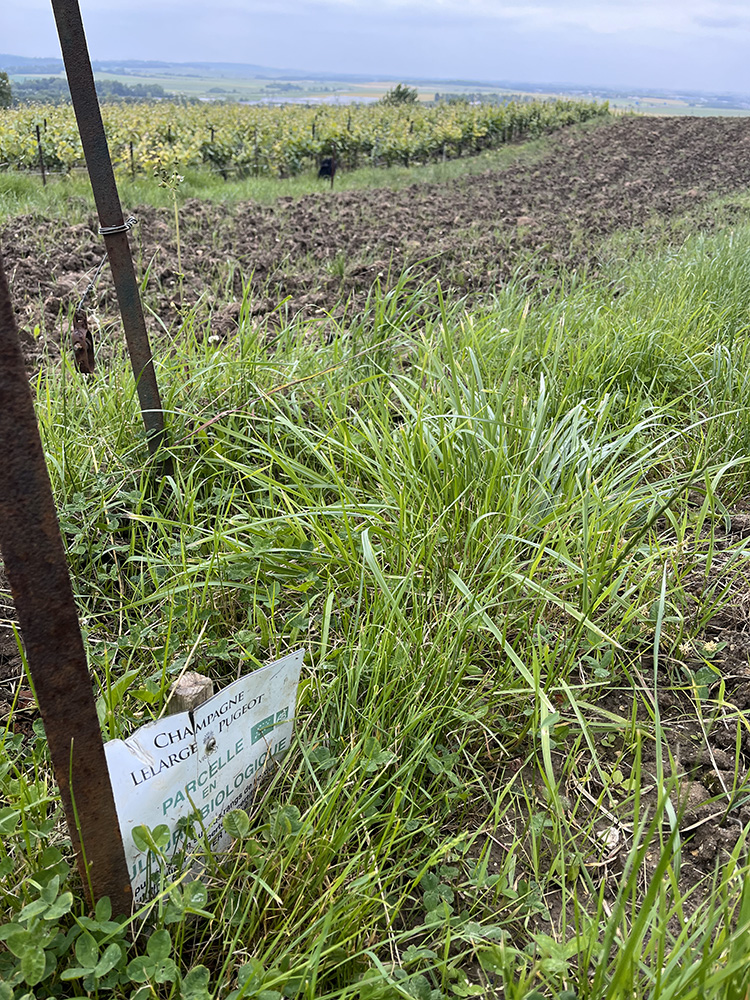
2024
New exciting project, we are replanting a vineyard, more detail to come…

